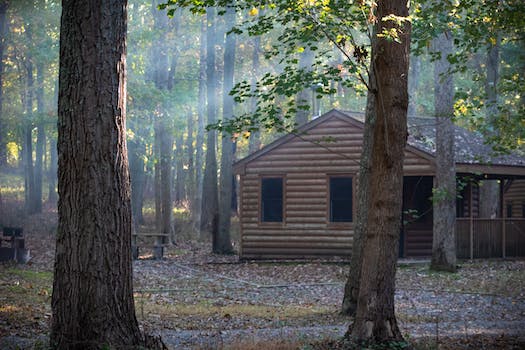How To Live Cheap On Retirement
“Stretch your retirement dollars further with these money-saving tips.”
Introduction
Living cheaply on retirement can be a challenge, but it is possible with careful planning and budgeting. In this article, we will discuss some tips and strategies for living frugally during retirement.
10 Tips for Budgeting on a Fixed Income During Retirement
Retirement is a time to relax and enjoy the fruits of your labor. However, it can also be a time of financial stress, especially if you are living on a fixed income. But don’t worry, there are ways to live cheap on retirement without sacrificing your quality of life. Here are 10 tips for budgeting on a fixed income during retirement.
1. Create a budget
The first step to living cheap on retirement is to create a budget. This will help you keep track of your expenses and ensure that you are not overspending. Start by listing all your sources of income and your monthly expenses. Then, prioritize your expenses and cut back on non-essential items.
2. Downsize your home
If you are living in a large home, downsizing can be a great way to save money. A smaller home means lower mortgage payments, lower utility bills, and less maintenance costs. Plus, you can sell your current home and use the proceeds to supplement your retirement income.
3. Cut back on transportation costs
Transportation can be a significant expense during retirement. Consider downsizing to one car or using public transportation. You can also walk or bike to nearby destinations to save money on gas and maintenance costs.
4. Shop smart
Groceries can be a significant expense during retirement. To save money, shop smart by buying in bulk, using coupons, and shopping at discount stores. You can also grow your own fruits and vegetables to save money on produce.
5. Reduce your energy bills
Energy bills can be a significant expense during retirement. To save money, reduce your energy consumption by turning off lights and appliances when not in use, using energy-efficient light bulbs, and installing a programmable thermostat.
6. Consider a part-time job
If you are struggling to make ends meet, consider a part-time job. This can be a great way to supplement your retirement income and stay active. Look for jobs that match your skills and interests, such as tutoring, pet-sitting, or freelance writing.
7. Use senior discounts
Many businesses offer senior discounts to customers over 55. Take advantage of these discounts to save money on everything from groceries to travel. You can also join senior discount clubs to access even more savings.
8. Travel smart
Travel can be a great way to enjoy retirement, but it can also be expensive. To save money, travel during the off-season, use travel rewards programs, and book in advance. You can also consider staying in budget-friendly accommodations, such as hostels or vacation rentals.
9. Stay healthy
Staying healthy can help you save money on healthcare costs during retirement. Eat a healthy diet, exercise regularly, and get regular check-ups to prevent health problems. You can also take advantage of free or low-cost health screenings and wellness programs.
10. Stay social
Socializing can be a great way to enjoy retirement, but it can also be expensive. To save money, look for free or low-cost activities in your community, such as book clubs, volunteer work, or community events. You can also host potlucks or game nights at home to save money on entertainment.
In conclusion, living cheap on retirement is possible with a little planning and creativity. By creating a budget, downsizing your home, cutting back on transportation costs, shopping smart, reducing your energy bills, considering a part-time job, using senior discounts, traveling smart, staying healthy, and staying social, you can enjoy a comfortable retirement without breaking the bank.
Frugal Living: How to Cut Costs and Save Money in Retirement

Retirement is a time to relax and enjoy the fruits of your labor. However, it can also be a time of financial stress if you haven’t planned well. Living on a fixed income can be challenging, but it doesn’t have to be impossible. With a few simple lifestyle changes, you can live cheaply and comfortably in retirement.
One of the first things you should do is create a budget. This will help you keep track of your expenses and ensure that you’re not overspending. Start by listing all of your monthly bills, such as rent/mortgage, utilities, and insurance. Then, add in your other expenses, such as groceries, transportation, and entertainment. Once you have a clear picture of your expenses, you can start looking for ways to cut costs.
One of the easiest ways to save money is to reduce your energy usage. This can be done by turning off lights and electronics when they’re not in use, using energy-efficient light bulbs, and adjusting your thermostat. You can also save money on your water bill by taking shorter showers and fixing any leaks.
Another way to save money is to shop smart. Look for sales and discounts when you’re buying groceries and other household items. Consider buying generic brands instead of name brands, as they’re often just as good but cost less. You can also save money by buying in bulk and freezing leftovers for later.
When it comes to entertainment, there are plenty of free or low-cost options available. Check out your local library for books, movies, and music. Many museums and parks offer free admission or discounted rates for seniors. You can also find free events in your community, such as concerts and festivals.
If you’re looking to downsize, consider moving to a smaller home or apartment. This can help you save money on rent/mortgage, utilities, and maintenance costs. You can also sell any items you no longer need or use, such as furniture, clothing, and electronics. This will not only help you declutter but also give you some extra cash.
Another way to save money is to be mindful of your health. This means eating a healthy diet, exercising regularly, and getting enough sleep. By taking care of your health, you can reduce your medical expenses and improve your overall quality of life.
Finally, consider taking on a part-time job or starting a small business. This can help you supplement your income and give you a sense of purpose. You can also use your skills and experience to offer services to others, such as tutoring or pet-sitting.
Living cheaply in retirement doesn’t mean sacrificing your quality of life. By making a few simple lifestyle changes, you can enjoy your retirement years without breaking the bank. Remember to create a budget, reduce your energy usage, shop smart, find free or low-cost entertainment, downsize if necessary, take care of your health, and consider taking on a part-time job or starting a small business. With these tips, you can live comfortably and frugally in retirement.
Maximizing Your Social Security Benefits to Stretch Your Retirement Dollars
Retirement is a time to relax and enjoy the fruits of your labor. However, it can also be a time of financial stress if you haven’t planned well. Living cheaply on retirement is possible, but it requires careful planning and budgeting. One way to stretch your retirement dollars is by maximizing your social security benefits.
Social security benefits are a crucial source of income for many retirees. However, many people don’t realize that they can increase their benefits by delaying their retirement. If you delay your retirement until age 70, you can increase your benefits by up to 8% per year. This means that if you were eligible for $1,500 per month at age 62, you could receive up to $2,640 per month by waiting until age 70.
Another way to maximize your social security benefits is by coordinating with your spouse. If you and your spouse are both eligible for benefits, you can choose to receive either your own benefit or half of your spouse’s benefit, whichever is higher. This can be especially beneficial if one spouse has a higher earning history than the other.
It’s also important to understand the tax implications of your social security benefits. Depending on your income, up to 85% of your benefits may be subject to federal income tax. To minimize your tax liability, you may want to consider withdrawing money from tax-free accounts, such as a Roth IRA, before taking social security benefits.
In addition to maximizing your social security benefits, there are other ways to live cheaply on retirement. One way is to downsize your living arrangements. If you’re living in a large house, you may be able to save money by moving to a smaller home or apartment. This can also reduce your maintenance and utility costs.
Another way to save money is by cutting back on unnecessary expenses. This may include eating out less often, canceling subscriptions or memberships you don’t use, and shopping for deals on groceries and other necessities. You may also want to consider using public transportation or carpooling instead of owning a car.
Finally, it’s important to have a budget and stick to it. This means tracking your expenses and income, and making adjustments as needed. You may want to consider using a budgeting app or software to help you stay on track.
In conclusion, living cheaply on retirement is possible, but it requires careful planning and budgeting. Maximizing your social security benefits can be a key part of this strategy, as can downsizing your living arrangements, cutting back on unnecessary expenses, and sticking to a budget. With the right approach, you can enjoy a comfortable retirement without breaking the bank.
The Benefits of Downsizing: How to Live Comfortably in a Smaller Home
Retirement is a time to relax and enjoy the fruits of your labor. However, it can also be a time of financial stress if you haven’t planned accordingly. One way to make your retirement more comfortable is by downsizing your home. Not only can this save you money, but it can also simplify your life and reduce stress.
The first benefit of downsizing is the cost savings. A smaller home means lower mortgage or rent payments, as well as lower utility bills. Additionally, a smaller home requires less maintenance, which can save you money on repairs and upkeep. By reducing your housing expenses, you can free up money for other things, such as travel or hobbies.
Another benefit of downsizing is the reduction in clutter. Moving to a smaller home forces you to evaluate your possessions and get rid of things you no longer need or use. This can be a liberating experience, as it allows you to focus on the things that truly matter to you. It also makes it easier to keep your home clean and organized, which can reduce stress and improve your quality of life.
Living in a smaller home can also encourage you to be more mindful of your spending. When you have less space, you are forced to be more intentional about what you bring into your home. This can help you avoid impulse purchases and unnecessary expenses. It can also encourage you to be more creative with the space you have, finding new ways to use and repurpose items you already own.
Of course, downsizing does come with some challenges. One of the biggest is the emotional attachment we often have to our homes. It can be difficult to let go of a place where we have created so many memories. However, it’s important to remember that memories are not tied to a physical space. You can still cherish those memories even if you move to a smaller home.
Another challenge is the physical process of downsizing. Sorting through years of possessions can be overwhelming, and it can be hard to know where to start. One approach is to break the process down into smaller tasks, such as tackling one room at a time. You can also enlist the help of friends or family members to make the process more manageable.
When it comes to finding a smaller home, there are many options to consider. Some retirees choose to move to a smaller house or apartment in the same area, while others opt for a completely new location. Some retirees even choose to live in a tiny home or RV, which can be a great way to simplify your life and reduce expenses even further.
Ultimately, the key to living cheap on retirement is to be intentional about your spending and to find ways to simplify your life. Downsizing your home can be a great way to achieve both of these goals. By reducing your housing expenses and simplifying your possessions, you can free up money and time to focus on the things that truly matter to you. So if you’re looking for ways to make your retirement more comfortable and stress-free, consider downsizing your home.
Traveling on a Budget: Tips for Affordable Retirement Adventures
Retirement is a time to relax and enjoy the fruits of your labor. However, it can also be a time of financial stress, especially if you haven’t saved enough for retirement. But don’t worry, there are ways to live cheap on retirement and still enjoy life to the fullest. One of the best ways to do this is by traveling on a budget. Here are some tips for affordable retirement adventures.
Firstly, plan ahead. Planning ahead is crucial when it comes to traveling on a budget. Start by deciding where you want to go and when you want to go. This will help you determine the best time to travel and the cheapest way to get there. You can also take advantage of off-season travel deals and discounts. Additionally, consider staying in budget-friendly accommodations such as hostels, Airbnb, or camping sites.
Secondly, be flexible. Being flexible with your travel plans can save you a lot of money. For example, if you’re willing to travel mid-week instead of on weekends, you can save a significant amount on airfare and hotel costs. You can also save money by being open to different destinations. Instead of going to popular tourist destinations, consider visiting lesser-known places that are just as beautiful and interesting.
Thirdly, use travel rewards. If you have a credit card that offers travel rewards, use them to your advantage. You can earn points or miles for every dollar you spend, which can be redeemed for free flights, hotel stays, or other travel expenses. Additionally, consider signing up for loyalty programs offered by airlines, hotels, and car rental companies. These programs can offer exclusive discounts and perks for frequent travelers.
Fourthly, eat like a local. Eating out can be expensive, especially in touristy areas. Instead of dining at expensive restaurants, try eating like a local. Visit local markets, food trucks, and street vendors for affordable and delicious meals. You can also save money by cooking your own meals if you’re staying in an Airbnb or camping site.
Fifthly, use public transportation. Public transportation is often cheaper than renting a car or taking taxis. Use buses, trains, or subways to get around instead of renting a car. You can also save money by walking or biking if you’re staying in a city or town.
Lastly, be mindful of your expenses. Keep track of your expenses and stick to your budget. Avoid unnecessary expenses such as souvenirs or expensive tours. Instead, focus on experiences that are meaningful and memorable.
In conclusion, traveling on a budget is a great way to live cheap on retirement. By planning ahead, being flexible, using travel rewards, eating like a local, using public transportation, and being mindful of your expenses, you can enjoy affordable retirement adventures without breaking the bank. So, pack your bags and start exploring the world on a budget!
Conclusion
Living cheap on retirement requires careful planning and budgeting. It is important to prioritize expenses and cut back on unnecessary spending. Downsizing to a smaller home, reducing transportation costs, and finding affordable entertainment options can also help save money. Additionally, taking advantage of senior discounts and government programs can provide financial assistance. With the right strategies in place, it is possible to live comfortably on a retirement budget.






